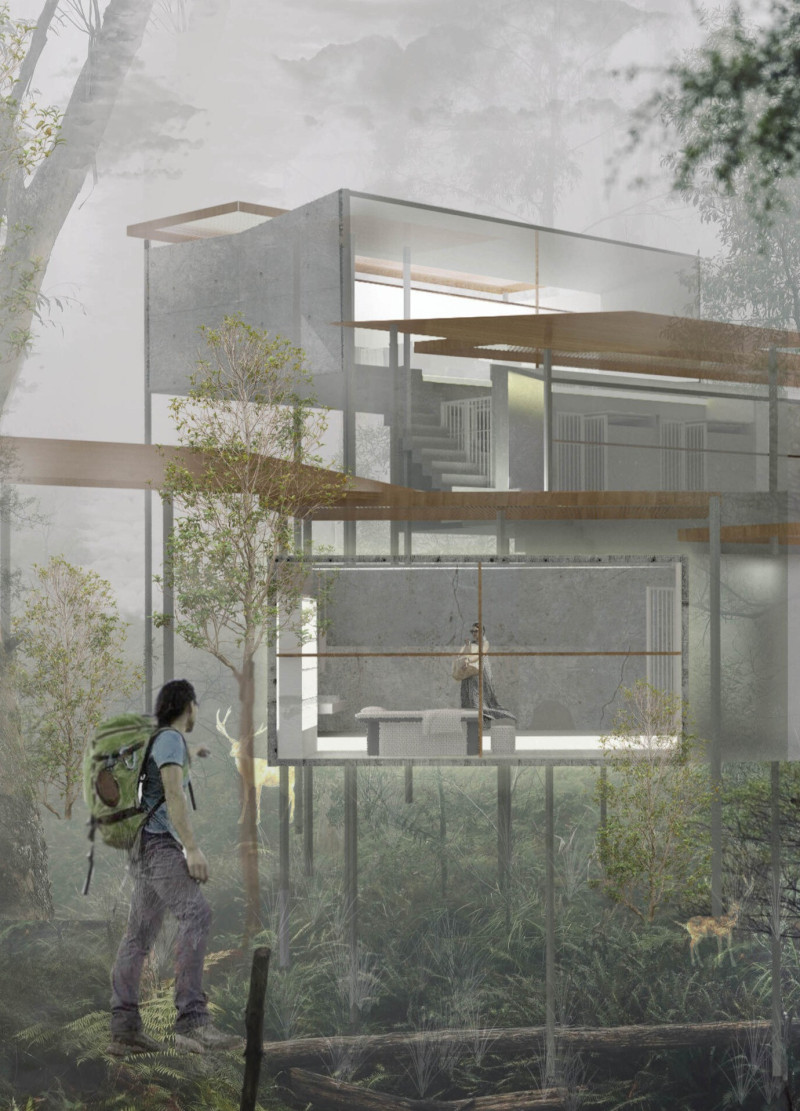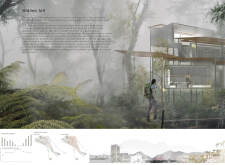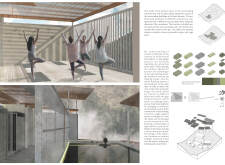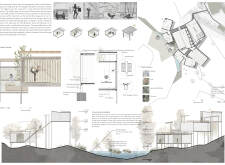5 key facts about this project
The "Hidden Hill" project is an architectural endeavor designed to create a sustainable retreat nestled within a mountainous region characterized by its verdant landscape and Mediterranean climate. The design emphasizes the integration of built environments with their natural surroundings, focusing on environmental sustainability and user experience. The project aims to promote a harmonious relationship between occupants and nature while providing a functional space for wellness activities and community engagement.
Sustainability is a fundamental aspect of the design, with a deliberate approach to selecting materials and structuring systems that minimize environmental impact. The choice of reinforced concrete for structural elements provides durability, while the use of sustainable biomass materials, such as bamboo and reclaimed wood, enhances ecological compatibility. The woven stone roof serves a dual purpose, enhancing aesthetics and collecting rainwater for filtration and reuse. Notably, the integration of asphalt hemp not only offers a waterproofing solution but also reflects an innovative strategy in sustainable construction.
Unique Design Approaches
The architectural layout promotes a division of space that supports both public and private functions. Interconnected cabins and communal areas are designed to ensure that visitors experience privacy while benefiting from shared spaces for yoga and wellness activities. Large windows and innovative roof designs facilitate natural ventilation and daylighting, further establishing a connection between the interior environment and the exterior landscape.
A significant feature of this project is its advanced water management system, which includes constructed wetlands for treating wastewater. This system utilizes native aquatic plants to purify water organically, enhancing local biodiversity while reducing the building's ecological footprint. The project exemplifies a comprehensive approach to water conservation and management.
Key Architectural Features
The design integrates several architectural elements that enhance its functionality and aesthetic appeal. The strategic placement of communal spaces allows for flexibility in use while encouraging interaction among users. Natural materials chosen for their thermal properties provide a comfortable indoor climate and accentuate the visual connection to the mountainous terrain.
Architectural plans reflect careful zoning of spaces for recreational and restorative functions, which are essential for the intended wellness atmosphere. This careful organization, accompanied by the facility’s cascading layout, helps to maintain a minimal visual impact on the surrounding landscape while promoting biodiversity around the site.
The "Hidden Hill" project represents a significant step towards a sustainable architectural practice that prioritizes ecological integrity and user well-being. For those interested in a deeper understanding of this project, further exploration of the architectural plans, sections, designs, and innovative ideas is encouraged to fully appreciate its contributions to contemporary architecture.






















































